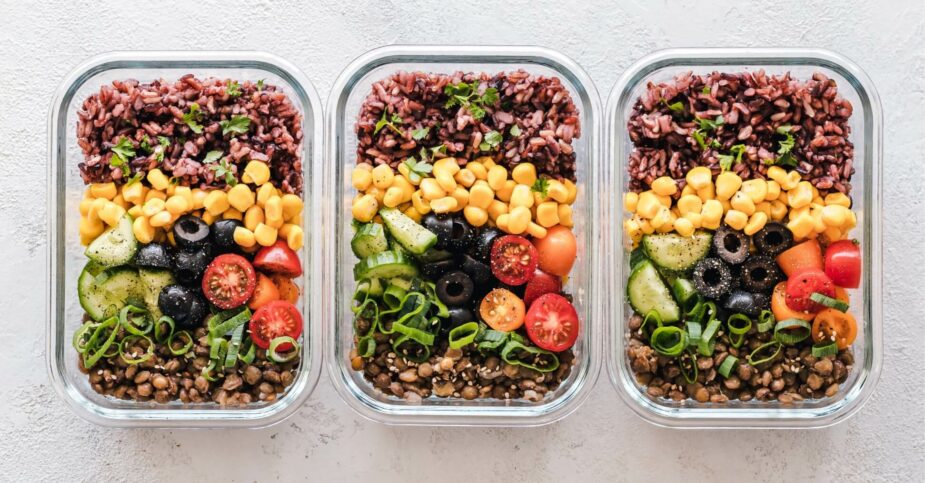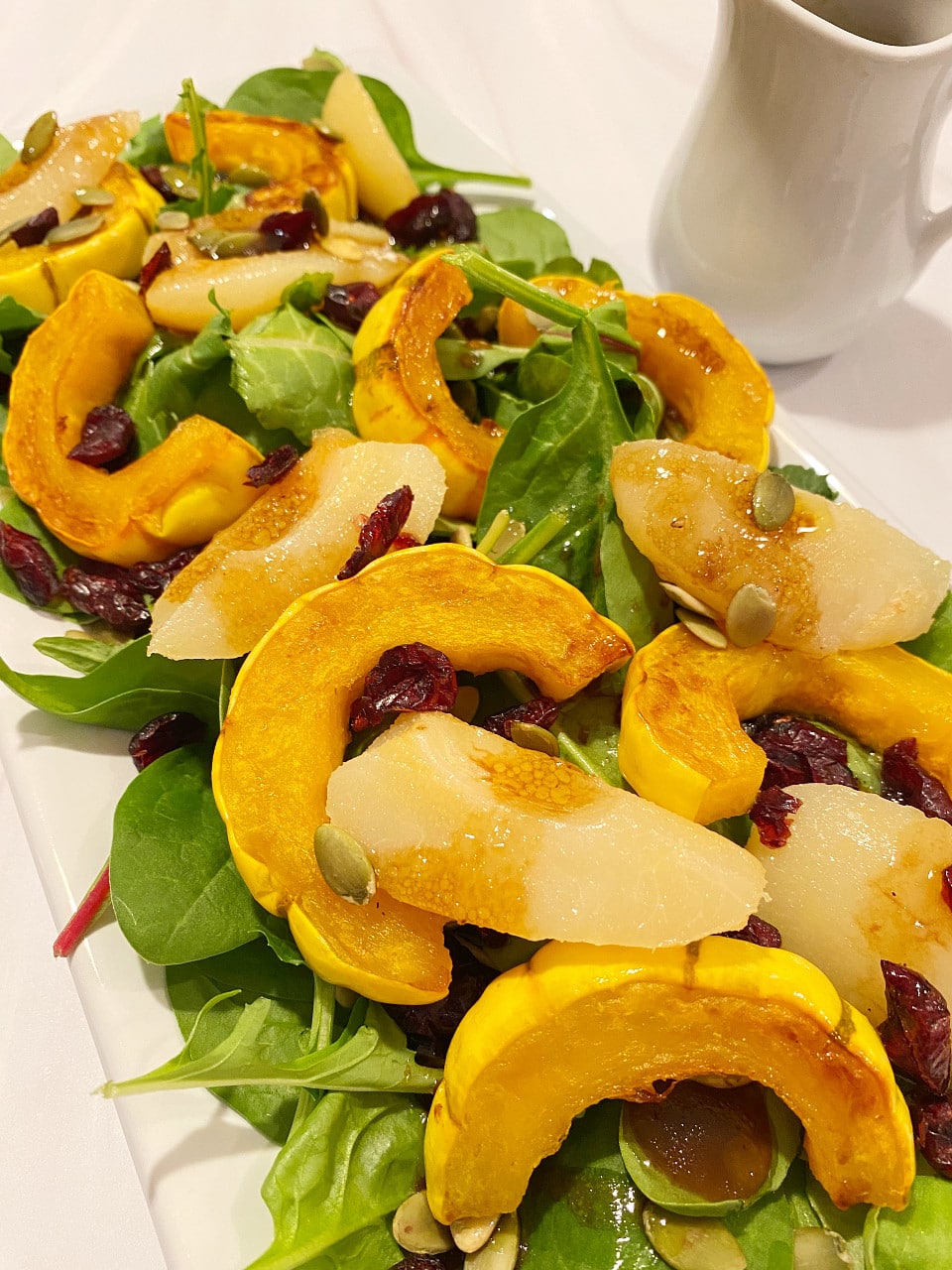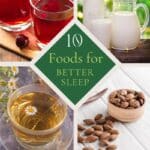I don’t know about you, but as I’ve gotten older, getting a good night’s sleep feels far too elusive, almost impossible some nights. Sure, stress and changing hormone levels play a big part, but did you know that what you eat can also make or break your sleep?
Some foods contain nutrients that naturally relax your body and support your sleep cycle – yay! On the other hand, some foods can do the exact opposite, leaving you wide awake at 2 a.m., counting sheep.
Hi, I’m Laura, a registered dietitian. I know firsthand how important getting a good night’s sleep is, and how frustrating it is when you can’t get it. It’s been a struggle for me, so I’ve done a lot of research to help myself, and I’ve found that what I eat can make a big difference. I’m ready to share these important tips so that you can have a better night’s sleep, too.
In this post, we’ll explore 10 foods that can help you snooze more soundly, and 5 you might want to avoid if you’re aiming for a restful night.
Table of Contents
How Food Can Help with Sleep
What you eat during the day, especially in the hours before you head to bed, can make a significant difference in how well you sleep.
Certain nutrients, such as magnesium, potassium, and tryptophan, help relax your muscles and support the production of calming brain chemicals, including serotonin and melatonin. These help your body wind down naturally and prepare for rest.
Other foods that are high in caffeine, sugar, or heavy fats can interfere with these processes, leaving you restless or waking up throughout the night. The good news? With a few simple food tweaks, you are ready for a more restorative night’s sleep.
10 Best Foods for Restful Sleep
1) Salmon (and other fatty fish)

Seafood offers numerous health benefits—it may surprise you to learn that it also tops the list for promoting better sleep.
Fatty fish like salmon, tuna, and sardines are rich in omega-3 fatty acids (EPA and DHA). We know these support heart and brain health, but research also suggests they may improve sleep quality and efficiency, especially in both younger and older adults.
I recommend having salmon and other fatty fish at least twice a week to reap the health benefits, including better night’s sleep.
My favorite ways to enjoy salmon: Sheet Pan Salmon with Roasted Potatoes and Broccoli, and my new Salmon Casserole with Brown Rice
2) Almonds
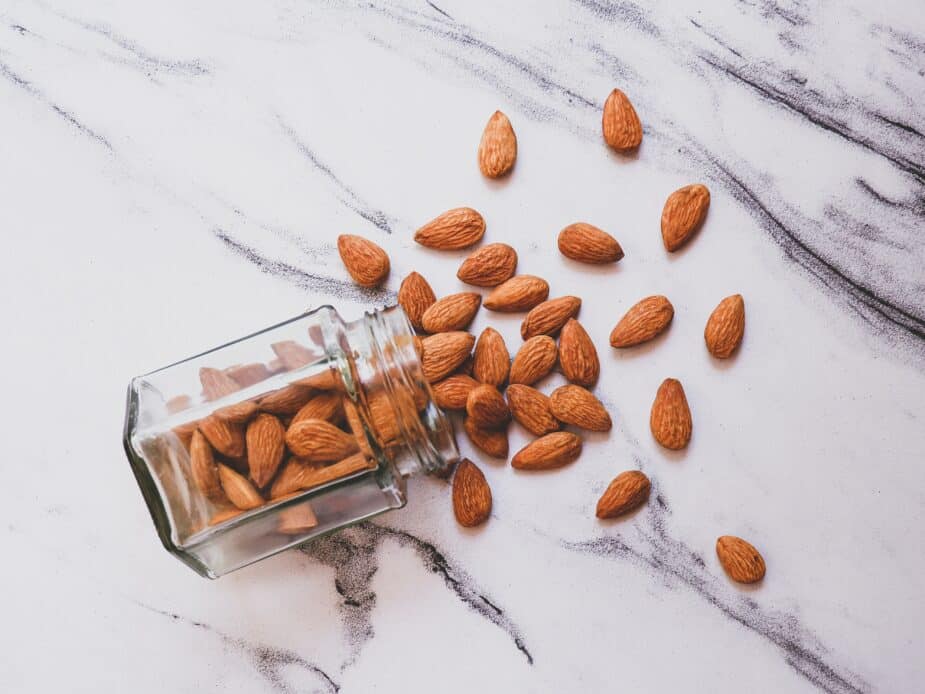
Almonds aren’t just a heart-healthy snack—they’re also a natural source of magnesium, which helps your muscles and nervous system to relax. Studies show that people who consume enough magnesium tend to report better sleep quality.
Almonds are also a natural source of melatonin, the hormone that regulates your sleep–wake cycle (and naturally decreases as we age). Other nuts also contain melatonin, including pistachios, walnuts, chestnuts, and pine nuts.
How to add almonds to your bedtime routine – Add a small handful of toasted almonds on top of your salad or mixed into a bowl of yogurt, or munch on a Blueberry Almond Energy Bite while settling down for the evening.
3) Poultry

You’ve probably heard that Thanksgiving turkey makes you sleepy because of tryptophan—and there’s actually a little truth to that. Poultry like turkey and chicken contain tryptophan, an amino acid that helps your body produce serotonin and melatonin. But most of that post-meal slump comes from enjoying a giant plate or two of a heavy meal and dessert, to boot.
But, there’s more to the sleepy story than just the tryptophan. The real sleep benefit may come from pairing lean proteins like poultry with whole grains, fruits, and vegetables. This combination keeps blood sugar stable through the night, helping you fall asleep more quickly and not wake back up at 3 am.
My favorite meals are made with poultry – Chicken with Roasted Grapes and Rosemary, and my new stovetop casserole – Chicken with Orzo and Sundried Tomatoes. Of course, an easy Chicken Salad on lettuce is a nice light meal that is delicious too. And, this recipe includes almonds that may also help get a good night’s rest, so double the benefit!
You don’t need much – just a 3 to 4 oz. serving of poultry is plenty.
4 ) Cherry Juice
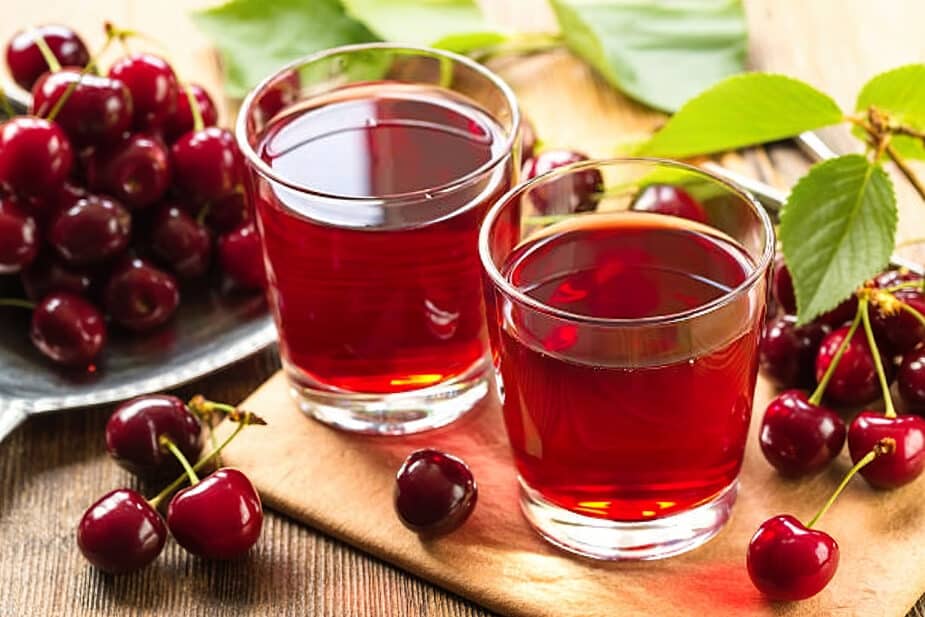
Tart cherry juice has gained attention as a natural way to get a more restful night’s sleep. It’s rich in melatonin, serotonin, and polyphenols, compounds that may reduce inflammation and support healthy sleep patterns.
A number of smaller studies support cherry juice’s ability to help with sleep, too. In younger and older adults, studies show that people who consume 2 cups of cherry juice a day fall asleep faster and stay asleep longer than those who don’t.
How to add cherry juice to your routine: 1 cup (8 ounces) of tart cherry juice in the morning and another cup before bed is what most recommend. I’ve used R.W. Knudsen Tart Cherry Juice. It is tart, so it takes a bit of getting used to.
To make it easier to tolerate, try blending it with a banana (also helpful for sleep) and yogurt to make a smoothie or freeze it in a popsicle mold for a sweet treat after dinner. You can also mix it with some seltzer water for a fun mocktail!
I have tried tart cherry juice, but quite honestly, I really hated it…and I didn’t see much of a change. That, combined with all those extra calories added to my day, was a bit much for me and not worth it.
I’ve kept cherry juice on this list because it is one of the most often recommended things for sleep, and it does work for some people. So it’s definitely worth a try. Just make sure to account for the extra calories and cut back elsewhere.
5) Oatmeal
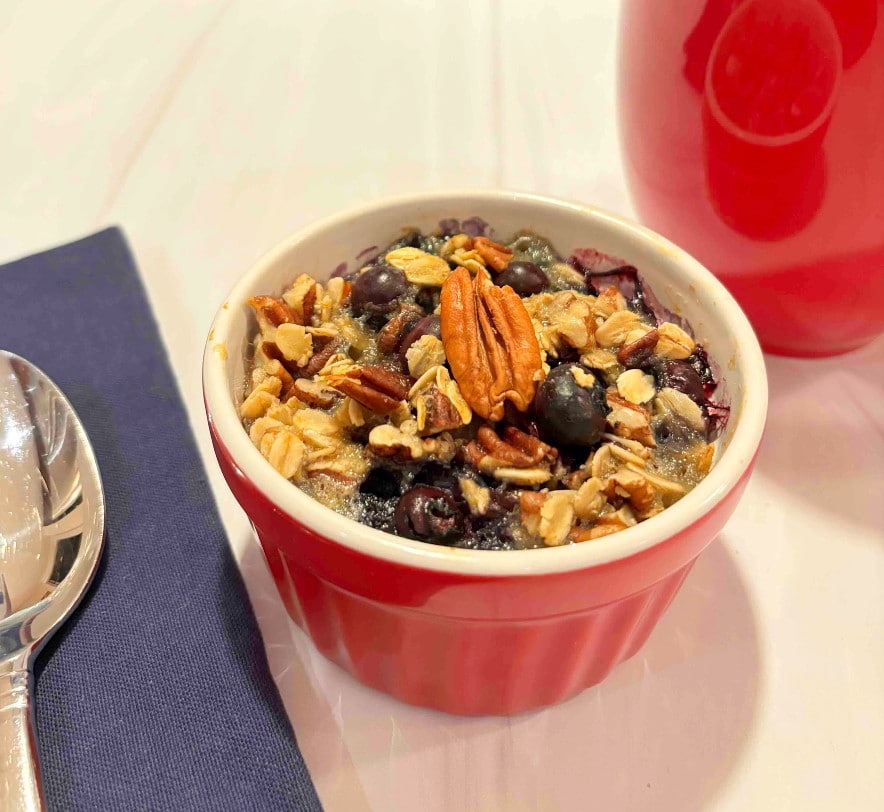
A warm bowl of oatmeal isn’t just a cozy breakfast! It is also a great choice for a bedtime snack.
Oats contain melatonin, and they are a good source of magnesium and fiber, which can help you relax and stay full throughout the night. There are some reports that it may help improve sleep quality in some individuals.
How to add oatmeal to your bedtime routine: Baked Oatmeal is a nice treat and works well as an after-dinner dessert. My individual blueberry baked oat cups work well for dessert.
6) Milk
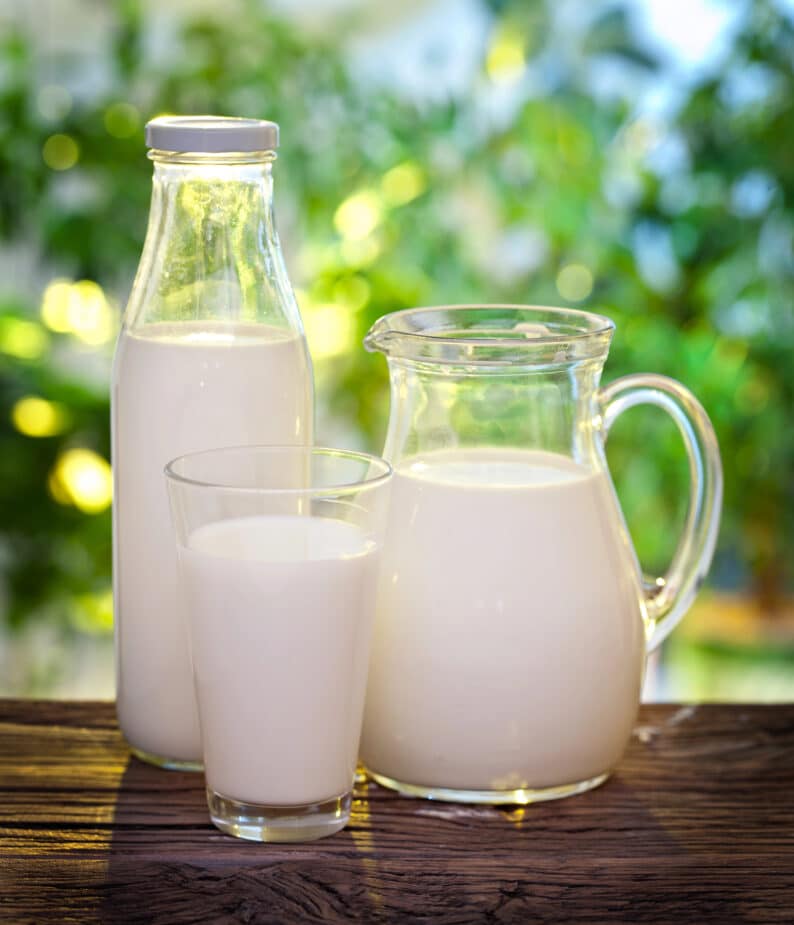
There’s something comforting about a glass of warm milk before bed—and science offers a few reasons why it might help. Milk contains tryptophan, which supports melatonin production. One study even found that older adults who drank milk with honey for three days reported better sleep quality.
And let’s not forget the nostalgia factor—warm milk may simply help you unwind by triggering calm, comforting memories. (Tip: skip the hot chocolate, especially if caffeine bothers you. The chocolate can undo the benefits of milk!)
How to enjoy milk as part of your bedtime routine: In place of hot chocolate, add some cinnamon or nutmeg to a warm cup of milk for a bedtime treat. Another delicious option is turmeric and honey mixed with milk for a golden milk latte.
7) Bananas
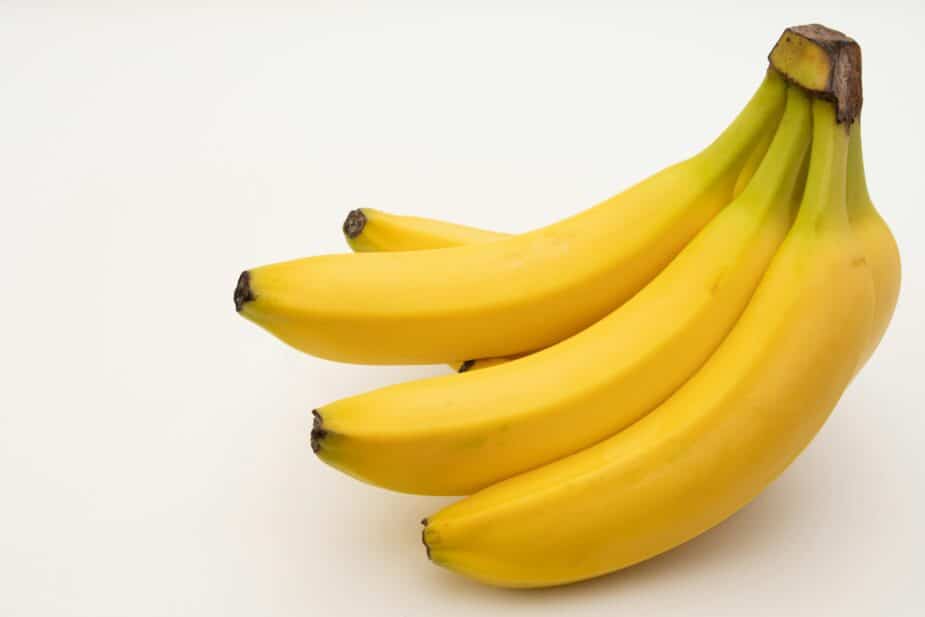
Bananas are rich in potassium, magnesium, and fiber, all of which support a good night’s rest. Potassium helps lower stress and regulate blood pressure, while magnesium relaxes muscles and nerves.
The fiber helps keep you satisfied, so you’re less likely to wake up hungry in the middle of the night. Bananas also provide tryptophan and melatonin, making them a simple and effective sleep-friendly snack.
How to include bananas as part of your bedtime routine: Add a banana to a smoothie or slice one up on top of a cup of oatmeal or yogurt for a bedtime treat. Or treat yourself to a banana walnut biscotti with a cup of chamomile tea!
8) Chamomile Tea

There’s a reason chamomile tea is a classic bedtime beverage. Along with being warm and soothing, chamomile contains a natural compound called apigenin, which binds to receptors in the brain that promote calmness and sleep.
Just be sure to sip it an hour or two before bed so you’re not up later for a bathroom trip!
How to enjoy a cup of Chamomile Tea: You can get pure chamomile tea and mix in a little honey for sweetness, but my favorite before-bed tea is Twinings Nightly Calm Tea. It is a blend of chamomile, spearmint, and lemongrass. The added mint and lemongrass add just enough flavor that I need very little honey or sugar for sweetness.
9) Kiwi
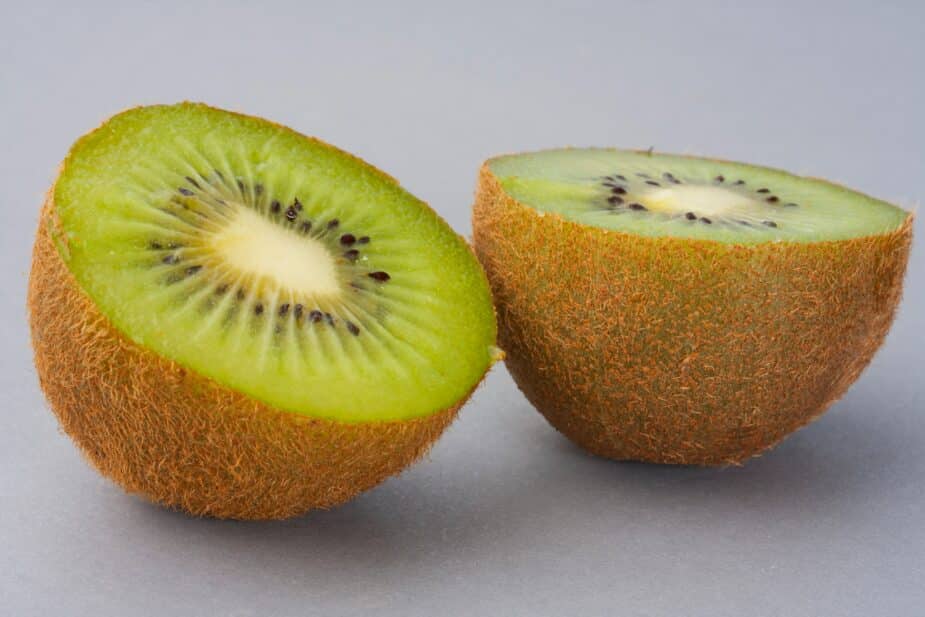
Kiwis might not be the first food that comes to mind for sleep, but research suggests they can help. They’re rich in vitamin C, vitamin E, and folate, nutrients that support your nervous system and help reduce inflammation.
Folate deficiency, in particular, has been linked to insomnia and restless leg syndrome, especially in women who are pregnant. Restoring folate levels may improve sleep quality, and kiwi fruit is a good source.
Easy ways to add Kiwis to your day: Try my Kiwi Strawberry Salad with Lemon Yogurt for a delicious (and sleep-friendly!) dessert or mix some pieces into a fruit salsa to go on top of roasted fish. Two kiwi fruits provide more than 100% of the vitamin C you need in a day and about 10% of the amount of folate you need.
10) Pumpkin Seeds
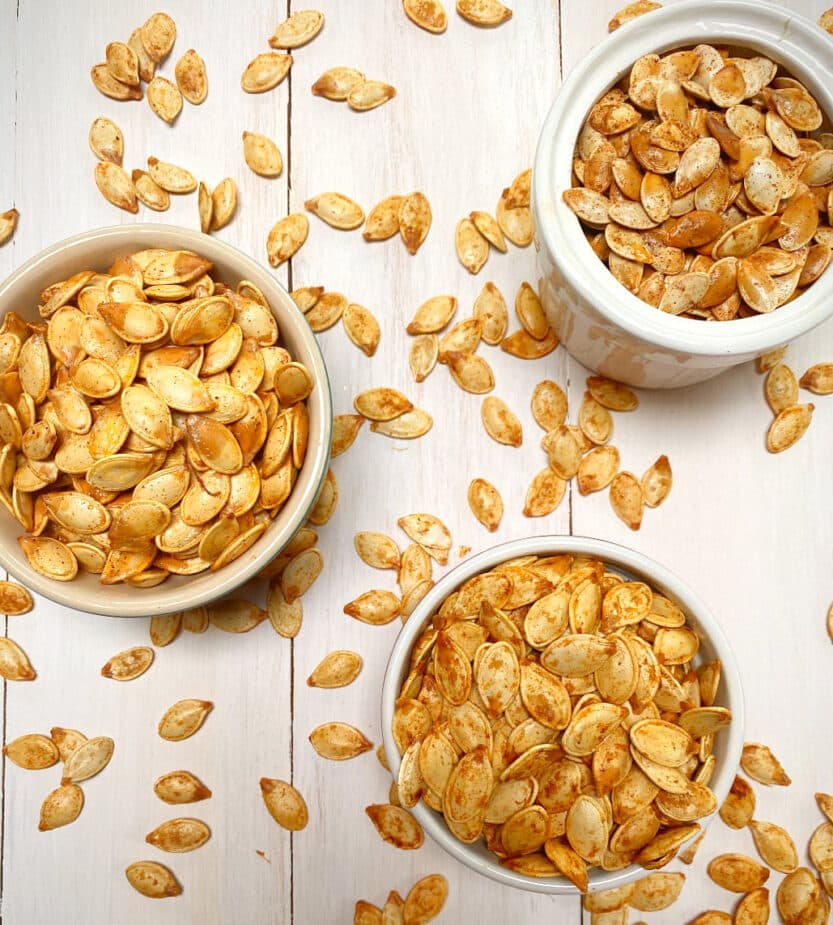
Pumpkin seeds are small but mighty when it comes to sleep nutrition. They’re rich in magnesium, tryptophan, and zinc. Zinc is one of the key players in natural melatonin production. 2 tablespoons of pumpkin seeds provide about 15% of your daily needs for zinc.
Easy ways to add pumpkin seeds to your day: Sprinkle a tablespoon or two of pumpkin seeds on your salad at dinner or mix them into oatmeal or yogurt before bed. Want to make your own? I show you three easy ways to roast pumpkin seeds here.
5 Foods (And Drinks) That May Keep You Awake
Just as some foods can help you drift off to dreamland, others can make it harder to get (or stay) asleep. If you struggle with restlessness at night, you may want to limit these foods and drinks, especially in the afternoon or evening hours.
1) Caffeine
Remember the days when an after-dinner coffee didn’t faze you? Unfortunately, as we get older, our bodies process caffeine more slowly. Double bad: this is especially true for women. That means the same cup that once perked you up can now linger in your system for hours, keeping your brain alert long after bedtime.
Caffeine isn’t just in coffee—it’s also found in tea, chocolate, energy drinks, and even some medications. If you’re sensitive to it, try stopping caffeine after lunchtime and see if your sleep improves.
My last cup of tea is right after lunch, and having this cut-off time is one of the biggest things that has helped me.
2) Alcohol
A glass of wine may help you relax…and it pains me to say this… but it can actually interfere with deep, restorative sleep. Alcohol disrupts your natural sleep cycles, often leading to restless nights or early awakenings.
Research has also linked alcohol consumption to a higher risk of sleep apnea, especially in women. This may be because alcohol relaxes the muscles in your upper airway, making breathing more difficult during sleep.
If you do enjoy a drink, try to have it with dinner rather than as a nightcap, and follow it with a glass of water. You may also find some mocktail recipes that you enjoy – especially with tart cherry juice!
3) Spicy Foods
Spicy dishes are delicious, but they can come back to haunt you—literally—when you’re trying to sleep. Spices like chili and cayenne can raise your body temperature and sometimes trigger heartburn or acid reflux, both of which make it harder to get comfortable lying down in bed.
If you love a little heat, enjoy spicy foods earlier in the day, and keep your evening meals milder.
4) Sugary Foods
Desserts and sweet snacks can cause a quick spike and crash in blood sugar levels, which may leave you wide awake or waking up in the middle of the night.
Sugary foods like desserts and sweet snacks also increase the release of stress hormones like cortisol, which can interfere with melatonin production and delay the onset of sleep. Instead of reaching for a big piece of cake or pie after dinner, try a small piece of dark chocolate (if caffeine doesn’t bother you) or fruit with a dollop of yogurt. (Remember those bananas and kiwis? They’ll help you to sleep more soundly!)
5) High-Fat Foods
A rich, heavy meal before bed can slow digestion and make you feel uncomfortable or bloated, keeping you awake longer. High-fat foods—fried fish, chips, French fries, and greasy pizza—can also trigger reflux, especially when you lie down soon after eating.
If you tend to eat late, aim for a lighter, balanced meal with lean protein, vegetables, and whole grains. This power combo will help to keep you satisfied without disrupting your sleep.
Bottomline
Getting a good night’s sleep does more than just boost your mood. A restful night supports your energy, focus, and even helps reduce the risk of chronic diseases like heart disease and Alzheimer’s disease. While shifting hormone levels can make sleep trickier as we get older, there are still plenty of lifestyle (and food) choices that can help.
Try adding a few sleep-friendly foods like cherries, almonds, or salmon to your meals. Save the caffeine, sugary, and heavier foods for earlier in the day. This will give your body the best chance to unwind and recharge.
Remember, everyone responds a little differently, so take some time to experiment and see what works best for you. And I’d love to hear—have any of these foods made a difference in your sleep? Share your experience in the comments below!



